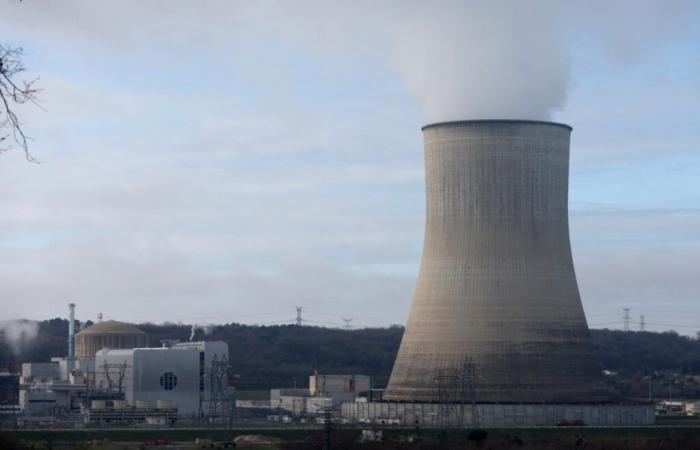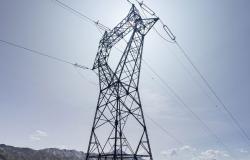
Nuclear remains the leading source of electricity production, at 67.41%, followed by renewables, at 27.6%.
( AFP / ROMAIN PERROCHEAU )
The “rapid recovery” of the production of the French nuclear fleet in 2024 and “record” renewable production has allowed the country to return to electricity production close to its pre-Covid levels, announced Monday January 20 the network manager RTE . For the first time, more than 95% of the electricity produced in the country is of low carbon origin.
“With 536.5 TWh, (the) electricity production (of France) reached
its highest level in 5 years
. It thus returns to a level identical to that of 2019, in line with the 2014-2019 average (537.5 TWh)”, detailed the manager of the high voltage network.
This increase of 8.45% compared to 2023 results from several factors: “The rapid recovery” of nuclear power (361.7 TWh)”, after a level in 2022 at the lowest in 30 years (279 TWh), due to corrosion problems in the nuclear fleet, and a gradual recovery in 2023; “exceptional hydraulic production”, at the highest since 2013 (74.7 TWh) and “sustained growth of the production of the wind and solar sectors (70 TWh in 2024, against 46 TWh in 2019)”.
Fossils below the solar for the first time
L
nuclear power remains the leading source of electricity production, for a share of 67.41%
far ahead of renewables (wind, solar, dams, biomass). But this renewable production “reached a record of 148 TWh, or 27.6% of total production”, underlined RTE. Around a third came from wind power (46.6 TWh).
According to RTE, production in fossil power plants (gas, coal, fuel oil) experienced, in 2024, “its lowest level since the beginning of the 1950s (19.9 TWh)”, representing
“for the first time”, a cumulative level lower than solar production
(23.3 TWh). Little used, gas power plants produced 17.4 TWh in 2024 compared to 29.2 TWh in 2023, and “the production of coal (0.7 TWh) and fuel oil (1.8 TWh) power plants remained low” , details RTE.
Building on its nuclear power and the growth of renewables, low-carbon production has thus “reached for the first time the threshold of 95% of electricity produced in France”, compared to 92.2% in 2023.
In Germany, the share of renewable energies has broken a new record in its electricity production, reaching 59% in 2024, the first year in which nuclear power has disappeared from its production mix. In the United Kingdom, which has turned the page on coal,
the share of low-carbon electricity production reached a record of 58%
including 45% in renewables and 13% in nuclear, according to a study by Carbon Brief.





